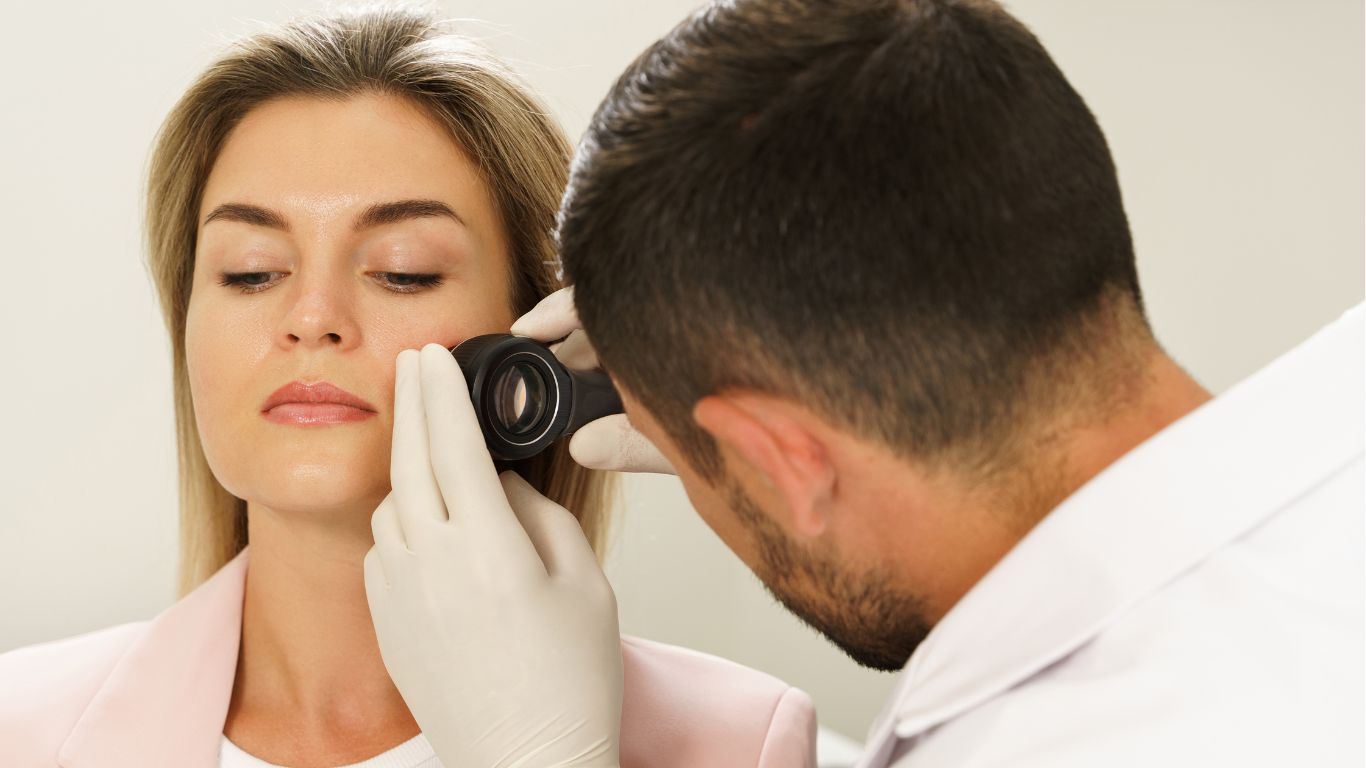Consult the Best Dermatologists Online at VRA Health – Trusted Skin Specialists for All Ages


At VRA Health, our Dermatology and Cosmetology Department provides comprehensive care for all types of skin, hair, and nail concerns. Whether you’re struggling with acne, dandruff, or simply want to maintain glowing skin, our expert dermatologists and cosmetologists offer personalized, evidence-based treatments that are safe, effective, and tailored to your unique needs. Book an online consultation today with a top skin specialist—without stepping out of your home.
Why Choose a Dermatologist?
A dermatologist is a medical expert trained in diagnosing and treating over 3,000 skin, hair, and nail conditions. These include common problems like pimples, itching, hair fall, white patches, and allergies, as well as chronic conditions such as psoriasis, eczema, vitiligo, and scalp infections. Our cosmetologists specialize in enhancing your appearance with non-invasive, medically approved aesthetic treatments.
At VRA Health, you’ll consult with some of the best dermatologists who offer holistic and medically supervised skincare solutions.
Common Conditions Treated by Our Dermatologists
Our team of experienced skin specialists handles a wide range of skin and hair issues, including:
-
Acne and acne scars
-
Oily skin and enlarged pores
-
Dull or pigmented skin
-
Dandruff and scalp irritation
-
Hair fall and thinning
-
Eczema, psoriasis, and skin allergies
-
Fungal infections and ringworm
-
Sunburn, tanning, and uneven skin tone
-
Dark circles and under-eye pigmentation
-
Nail infections and discoloration
-
Melasma, freckles, and age spots
-
Itchy skin or dry skin conditions
Whether you're dealing with sudden breakouts or recurring scalp issues, we’ll help restore your skin’s health and confidence.
Expert Acne and Dandruff Care
Struggling with persistent pimples or flaky scalp? Our dermatologists specialize in acne care—offering targeted treatments like retinoids, chemical peels, and oral therapy based on acne severity. We also provide guidance on choosing the right anti-dandruff shampoo, and personalized treatment for dandruff caused by oily scalp, fungal infections, or sensitivity to hair products.
Say goodbye to trial-and-error skincare. Our experts provide plans that work.
Aesthetic Skin Treatments by Cosmetology Experts
For those looking to improve skin appearance or reverse signs of aging, our cosmetology services include:
-
Skin brightening and glowing skin treatments
-
Anti-aging solutions including botox and fillers
-
Laser hair reduction
-
Chemical peels for pigmentation and dullness
-
Scar revision and skin rejuvenation procedures
-
PRP therapy for hair loss
-
Medicated facials for sensitive or acne-prone skin
All treatments are carried out under strict dermatological supervision for safety and results.
Online Skin Consultations with Top Dermatologists
VRA Health offers fast and private online dermatologist consultations. You can now get expert help for acne, rashes, dandruff, or cosmetic concerns—all from your home. Upload pictures, discuss your concerns, receive e-prescriptions, and get product recommendations directly from our verified skin specialists.
Why VRA Health Is the Right Choice for Your Skin
-
Consult with some of the best dermatologists online or in-clinic
-
Individualized treatment plans for each skin type and concern
-
Evidence-based, dermatology-approved skincare routines
-
Guidance on medical-grade products, sunscreens, and anti-dandruff shampoos
-
Integrated cosmetic and medical dermatology services
-
Trusted by thousands of patients for clear, healthy, and glowing skin
Testimonials
"I had been trying every acne product on the market with no success. The dermatologist at VRA Health diagnosed my skin type and gave me a treatment that showed results in 2 weeks."
– Neha R., Pune
"My scalp dandruff was out of control until I consulted a skin specialist at VRA Health. I got the right anti-dandruff shampoo and routine that worked."
– Rakesh K., Hyderabad
Book a Dermatologist Consultation Today
Don’t let skin or hair problems affect your confidence. Whether it’s acne, dandruff, or you just want advice on maintaining glowing skin, our certified dermatologists are here to help. Schedule an online appointment now and take the first step toward healthy, radiant skin.

